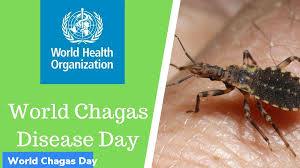World Chagas Disease Day 2024:

The World Health Organization designated April 14 as World Chagas Disease Day to raise awareness of the disease and its impact on global health.
- The theme for 2024, ‘Tackling Chagas disease: detect early and care for life,’ emphasizes the importance of early detection and treatment to prevent the progression of the disease and reduce its burden on affected individuals and communities.
- Chagas disease, also known as American trypanosomiasis, is a parasitic infection caused by the protozoan Trypanosoma cruzi.
- It is primarily transmitted to humans through the feces of infected triatomine bugs, also known as “kissing bugs,” that typically bite humans on the face at night.
- The disease can also be transmitted through blood transfusions, organ transplantation, and from mother to child during pregnancy.
- Chagas disease has two phases: an acute phase and a chronic phase.
- The acute phase usually lasts for the first few weeks or months after infection and is often asymptomatic or causes mild symptoms such as fever, fatigue, body aches, and swelling at the site of infection.
- The infection progresses to the chronic phase, which can lead to serious and potentially life-threatening complications. Chronic Chagas disease can cause heart problems, including an enlarged heart, heart failure, and abnormal heart rhythms, as well as digestive issues such as megaoesophagus and megacolon.




